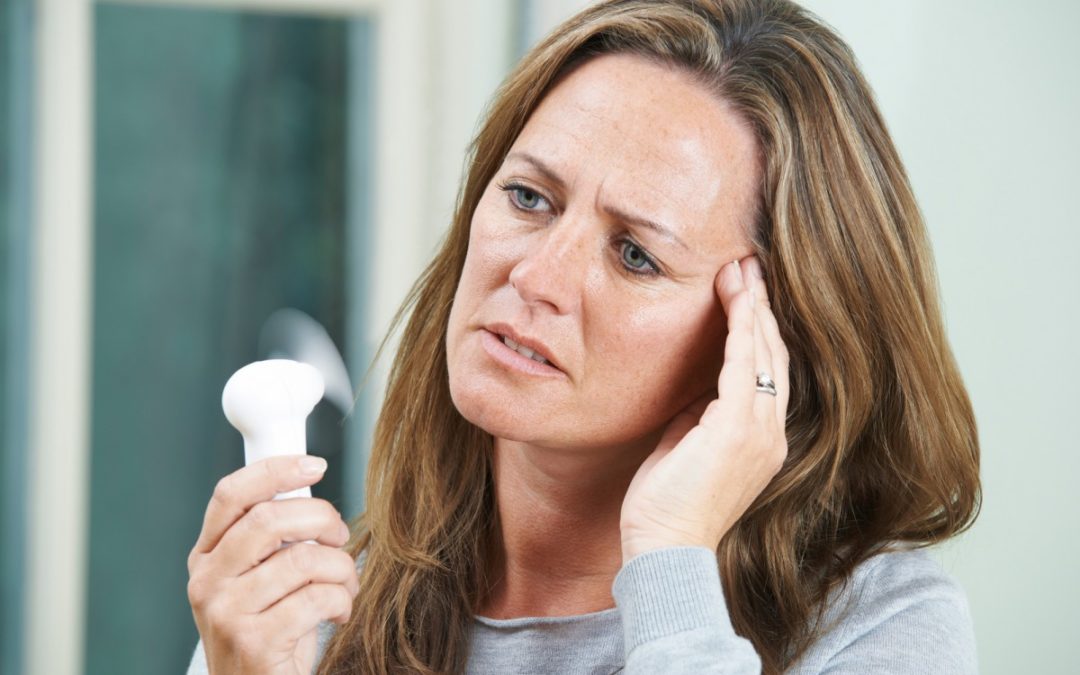Are you experiencing night sweats, hot flashes, increased anxiety or irritability? These may be signs of menopause—the natural biological process in which the menstrual cycle stops.
While you can’t prevent menopause, your physician may help you manage the symptoms through hormone replacement therapy.
Hormone replacement therapy is a highly effective treatment for menopause-related hot flashes, and treating this symptom may also yield benefits in other areas including improved mood, increased energy and reduced fatigue.”
When Does Menopause Occur?
The average age for women to experience menopause is 51, but some may experience symptoms as early as age 40 or as late as age 55. This transition period occurs in three phases:
- Perimenopause: This is the transition time leading up to your last period when a woman’s body begins gradually producing fewer hormones.
- Menopause: This stage occurs when it has been one year since a woman’s last period. The ovaries no longer produce eggs or much estrogen.
- Post-menopause: In the years following menopause, most menopausal symptoms decrease or cease altogether.
What are the symptoms?
The severity of perimenopause and menopause symptoms can vary. Common signs to look out for include:
- Hot flashes
- Night sweats
- Low sex drive
- Dry eyes, skin and mouth
- Vaginal dryness or pain
- Emotional changes (mood swings, irritability)
- Fatigue
- Insomnia
- Changes in urinary frequency
- Hair loss
- Memory problems
How Hormone Replacement Therapy Can Help
With the onset of menopause, the ovaries produce less estrogen and progesterone—which is what triggers symptoms. Hormone replacement therapy (HRT) can not only help relieve menopause symptoms but also protect against osteoporosis. As with any medical treatment, there are risks associated with HRT, but it remains the most effective treatment for perimenopause and menopause symptoms.
Types of Hormone Replacement Therapy
The majority of hormones are produced synthetically or derived from plant estrogens that occur in nature. Hormone therapy may contain a combination of estrogen, progesterone, and testosterone. Your physician may do blood or saliva test to determine which type of replacement therapy is best for you.
Prescription treatment is covered by most insurance plans. Bio-identical hormones are a form of hormone replacement that is formulated by a compounding pharmacist using naturally derived hormones that can be tailored to a woman’s specific needs. Many insurance plans, unfortunately, have limited coverage for this type of hormone therapy.
Hormone replacement therapy is administered in various forms including an oral pill, patch, topical cream, or vaginal ring. Evidence suggests that topical formulations may be associated with less of DVT blood clots.
For women who are no longer having systemic symptoms of menopause, but limited to vaginal dryness and pain with intercourse, many physicians will prescribe local vaginal therapy. This most commonly comes in the form of a vaginal cream or tablet, a daily oral tablet, or laser rejuvenation procedures.
When to Consult a Physician
If the symptoms of menopause are interfering with your daily life, the physicians at Lowcountry Women’s Specialists can help determine if the benefits of hormone replacement or other therapies are the best option for you. To schedule an appointment, call (843) 797-3664 or visit LowcountryWomen.com.


